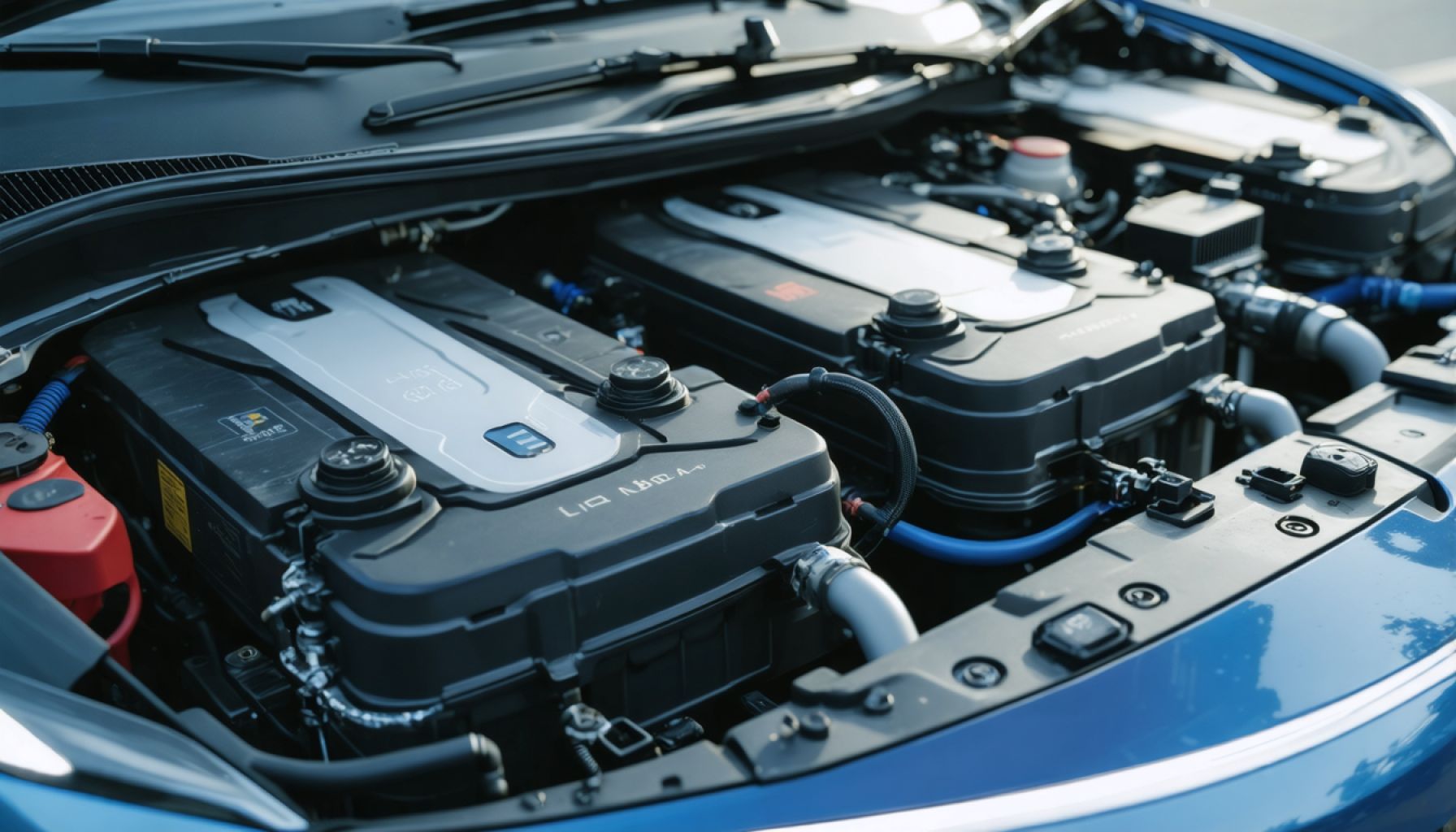- 电池冷却液对电动车的效率和性能至关重要,预计市场将从2024年的20.715亿美元增长到2034年的28.914亿美元。
- 预计到2050年,城市化将达到68%,推动对先进电池热管理解决方案的需求。
- 领先公司如Castrol和Arteco正在创新电流体,以增强热管理,延长电池寿命和性能。
- 液体冷却液在高热排放情况下的效率优于传统的空气冷却,对复杂的电池系统至关重要。
- 亚太地区,尤其是中国,因政府激励措施和基础设施投资在电动车增长方面处于领先地位。
- 北美的环境意识和政策为进一步的市场扩展和创新铺平道路。
- 电动车冷却液市场支撑着向电气化的更广泛转变,强调了热管理在未来出行中的作用。
在我们未来城市风光中闪耀的街道上,电动车在日常通勤中静静地行驶,一位无声的英雄出现了——电池冷却液。作为电动车效率的支柱,冷却液正准备迎来巨大的增长,预计将从2024年的20.715亿美元跃升至2034年的28.914亿美元。这一增长不仅预示着出行方式的革命,也挑战着当今创新者的技术能力。
每辆电动车的核心中都有一个强大的电池,就像心脏为复杂的电路和电机系统提供生命般。随着城市交通的无情节奏散发更多的热量,对高效冷却解决方案的需求不断增加。电池冷却市场的转变,由不断增长的城市化推动。联合国预计到2050年,世界上68%的人口将居住在城市,这使得对先进电池热管理的需求变得更加迫切。
当辐射能量从阳光明媚的面板转移至电池核心时,对于更大、更高能量存储电池的需求变得显而易见。 高性能电动车和商业电动运输工具渴望创新,促使高容量冷却系统的发展。像Castrol和Arteco这样的公司正积极创新,开发尖端电流体,以增强热管理,延长电池寿命,同时维持电动引擎平稳而低语的魅力。
然而,并非所有解决方案都能产生同样的影响。传统的空气冷却以其简单和成本效益而受到青睐,旨在通过避免液体和泵来减少机械故障,但在城市频繁停车的压力下,其能力有限。另一方面,液体冷却剂——虽然更复杂,但更高效——承诺能够处理复杂电池系统日益增加的热输出。
这一市场的核心,目前立足于亚太地区,依托中国电动车运动的强劲动力。政府的激励措施和对基础设施的投资推动该地区走到最前沿,使其成为电动交通增长的沃土。穿过海洋,北美正为大幅度增长做好准备。美国和加拿大的环境意识不断提升,加之支持性政策为创新和市场扩展奠定了良好的基础。
这种对技术进步和地理战略增长的持续关注突显了一个单一真理:未来的出行并不仅仅依赖于速度和效率,还依赖于我们电动汽车隐秘动脉中的热管理世界。电动汽车冷却液市场不仅支撑着向电气化的转变,还象征着技术、环境和人类聪明才智之间的复杂互动。
随着我们逐步走向更绿色、更高效的交通方式,普通的冷却液不仅仅是一个配件,而是未来交通生态系统的基石——安静地革新我们在电气化勇敢新世界中如何引导能源的方式。
电动车的无名英雄:探讨电池冷却液市场的繁荣
引言
在电动车(EV)的世界中,虽然经常因其流线型设计和环保效益而受到赞扬,但一个至关重要的元素却在幕后默默运作:电池冷却液。这些无名英雄在维持电动车电池的效率、性能和耐用性方面发挥着关键作用。随着电池冷却液市场预计从2024年的20.715亿美元激增至2034年的28.914亿美元,了解它们的重要性变得尤为重要。
为什么电池冷却液如此重要
冷却液在电动车中的作用
电动车电池在工作时会产生热量,尤其是在快速加速或城市频繁停车的情况下。通过冷却液有效的热管理可防止过热,从而提高电池的性能和寿命。特别是液体冷却液因其在管理高热输出上的优越能力而受到越来越多的关注,优于传统的空气冷却系统。
推动城市化的趋势
根据联合国的预测,到2050年,全球人口预计将68%居住在城市。这一城市化转变增加了对可持续交通解决方案的依赖,使电池热管理成为技术创新的前沿。
市场预测及行业趋势
地理洞察
亚太地区,尤其是中国,在电动出行方面处于领先地位,得益于政府的激励措施和可观的基础设施投资。与此同时,北美由于环境意识的提升及美国和加拿大等国家支持性立法框架的促进,正为增长做好准备。
冷却技术的创新
领先的公司如Castrol和Arteco正在开创电流体的开发,提供为高性能电动车量身定制的先进冷却解决方案。这些创新承诺增强热散发,至关重要于下一代电动车和商业电动运输工具。
如何优化电动车性能
1. 了解您电动车的冷却系统:熟悉您的车辆热管理系统,无论是空气冷却还是液体冷却。
2. 定期维护:定期检查冷却液水平,确保及时处理任何泄漏,以保持系统效率。
3. 选择合适的冷却液:咨询制造商,识别针对您车辆电池和性能需求量身定制的冷却液。
优缺点
液体冷却液
优点:
– 更好的热散发能力。
– 适用于高性能应用。
– 降低因过热导致电池损坏的风险。
缺点:
– 系统更复杂,可能成本较高。
– 需要定期维护和检查。
空气冷却
优点:
– 更简单和成本效益。
– 维护要求较低。
缺点:
– 在高需求条件下有效性有限。
– 可能无法满足新一代电动车的更高热输出。
实际应用
随着电动车需求的上升,有效的热管理在公共和商业领域也成为一个焦点。例如,车队运营商可以显著受益于冷却技术的创新,以提高电动巴士和送货卡车的效率和耐用性。
可行建议
– 用户:确保定期检查您电动车的冷却系统,并根据车辆的使用模式调整冷却液类型。
– 行业利益相关者:投资于研究与开发,以改进冷却技术,提升电池管理。
– 政策制定者:强化监管标准,激励城市交通中更清洁、更高效的电动车技术。
在了解电动出行创新的未来,想了解更多请访问彭博社。
通过强调热管理在电动车发展中的重要角色,电池冷却液市场成为支持更可持续和高效城市交通解决方案的关键组成部分。跟上这些趋势能帮助消费者和利益相关者做出明智的决策,既惠及个人车辆,也有利于整个环境形势。
